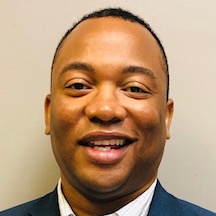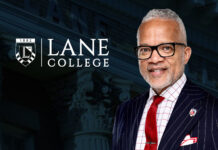Kenneth Hawkins, an English instructor at Hillsborough Community College in Tampa, Florida, and a doctoral candidate in community college leadership at Ferris State University in Big Rapids, Michigan, examines how the current COVID-19 pandemic will impact the future of the nation’s historically Black colleges and universities.
 Historically Black colleges and universities, which, in some cases, have been previously dealing with low enrollment, now must face what will happen if the COVID-19 pandemic exacerbates an already tenuous financial future.
Historically Black colleges and universities, which, in some cases, have been previously dealing with low enrollment, now must face what will happen if the COVID-19 pandemic exacerbates an already tenuous financial future.
“There is no question that the financial impact on universities is unprecedented and profound,” says E. LaBrent Chrite, president of Bethune-Cookman University, a historically Black educational institution in Daytona Beach, Florida. “For HBCUs, the effects are potentially more devastating. Our margins are already thin.”
While predominantly White institutions will no doubt feel the sting of the pandemic, Black institutions have fewer resources and wealth than other four-year colleges and universities. This means a setback may not just spell working from a diminished position but one that results in financial ruin.
Morris Brown College in Atlanta has been fighting an uphill battle to restore its accreditation, but to get back in good standing the college has to first raise enough money to hire instructors and staff and update facilities. Currently, the four-year college has 35 students enrolled.
Kevin James, interim president of Morris Brown, says during the beginning of the crisis when people were told to maintain social distances, he was supposed to be spearheading the school’s Founder’s Day in which many alumni would have been asked to give. He said not having a face-to face approach to fundraising may have undercut the process. What’s worse, he says, “donors may be more worried about ‘Do I give or do I pay for groceries.’ This is very important. We just hope that it won’t negatively impact us.”
But assuming the impact will be worst for HBCUs, the question arises will President Donald Trump and the U.S. Congress do more to restore these colleges to their financial state before the pandemic?
“I think our expectation is that we will mitigate whatever problems happen as a result of the Coronavirus” President Chrite says. “We are focused on getting our students back to campus. It is up to us to remain successful and to support our students in any way possible.”
Colleges and universities around the country have already moved their classes online, offered students technology to access their classes, and have extended training to instructors who are not accustomed to teaching online. Many institutions, furthermore, are considering extending their classes online into the summer, which, for HBCUs, might be a further burden as these institutions have prided themselves on developing interpersonal relationships between faculty and students.
For some institutions like Jackson State University, getting through the pandemic will be a challenge, but the transition to move classes online isn’t as much a strenuous motion because the institution already has a “robust” online program, says acting president Thomas Hudson.
“I’m confident in our ability to move forward with remote learning especially as this is where large segments of higher education are headed anyway. Financially, I am concerned moving forward based on the impact this pandemic may have on our fall 2020/spring 2021 enrollment. That’s the unknown.”













The intentional building of interpersonal relationships has supported the relaunch of many Black and Brown students who had given up being life long learners. That role modeling and “reach out” to those students has, I feel, inspired “if it is to be it is up to me” which is a responsibility to personal and civic leadership.
We have to rally around them. Thank you for this reminder. Thank you for the article.
This article appropriately points out the severe challenges that HBCUs face and will be facing whenever the pandemic ends. I am not certain at this point that all of them will survive. It will take thinking outside the box and changing their enrollment and instructional paradigm in order to thrive during these challenging times.